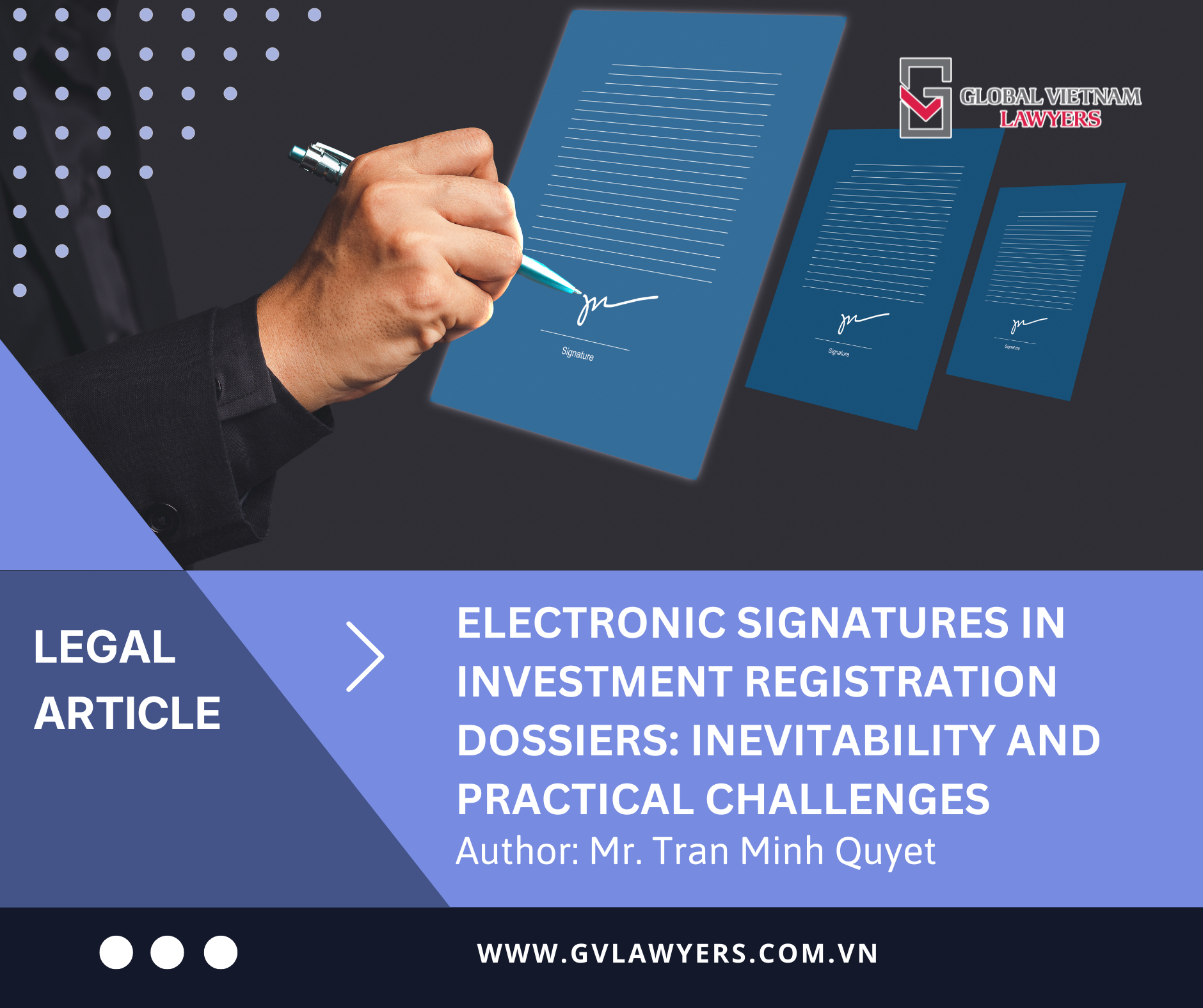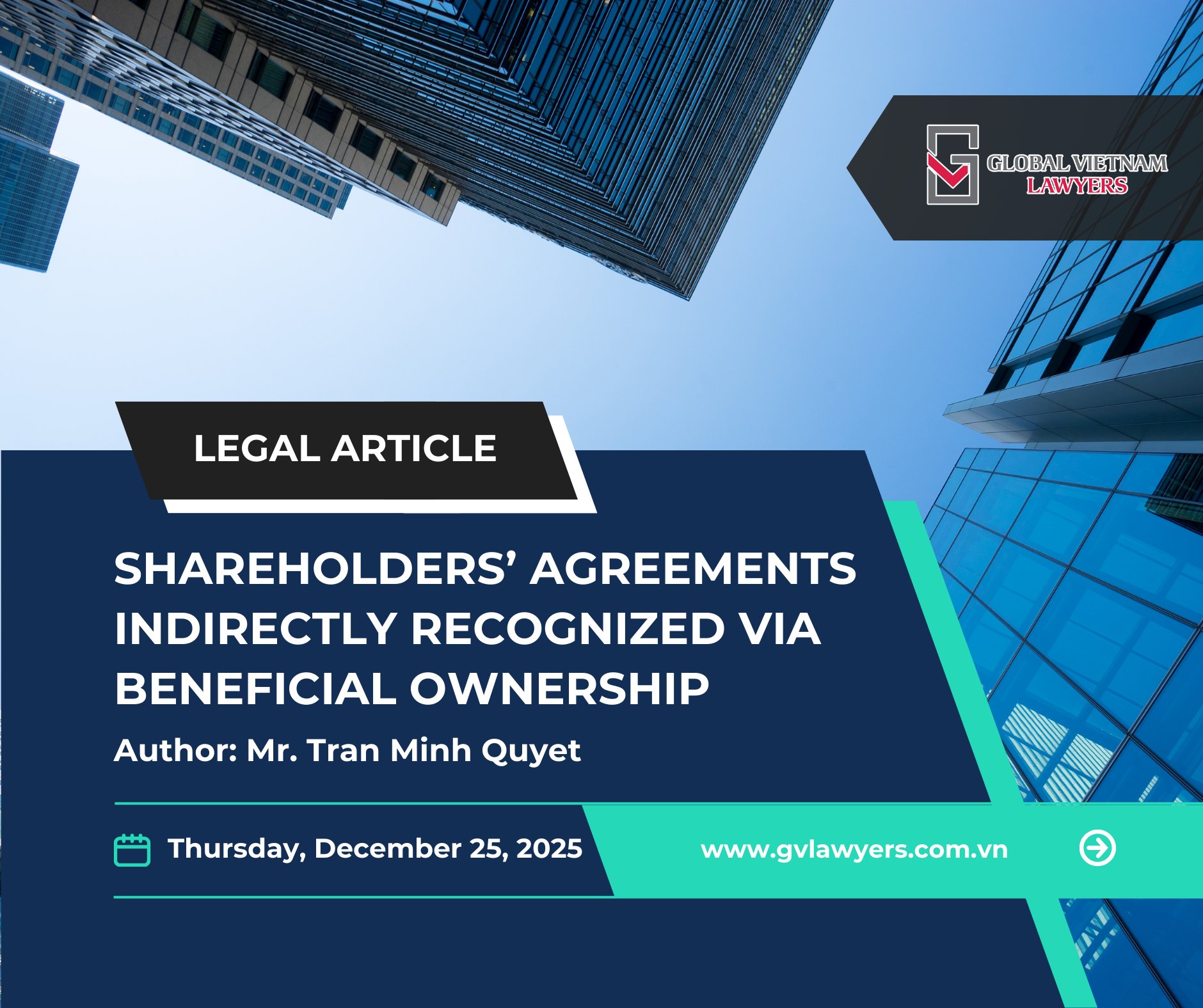GV Lawyers would like to introduce the article of Lawyer Tran Thanh Tung titled “Four risks of a joint stock company manager” published on the Saigon Economic Times on 10 December 2020, No. 50.2020 (1,565 ).
***
WHAT DOES THE HOUSEKEEPER “DO” WHEN THE HOMEOWNER IS AWAY?
A joint stock company is built on the principle of separating the company’s ownership from its management rights. Shareholders (owners of the company) attend only once or twice a year the general meeting of shareholders and then dissolve. Between the general meeting of shareholders, all power is vested in the “housekeeper” who is the board of directors and the board of managers. From the perspective of a homeowner, his constant concern is whether housekeepers fulfill their assigned duties? The classic answer is “no,” because empowered people tend to abuse power and act for self-interest.
To protect shareholders and limit the manager’s ability to abuse the rights and act for self-interests, the law assigns legal responsibilities to managers. Accordingly, they must: (i) exercise their rights and obligations in an honest, prudent and best manner to ensure the legitimate interests of the company; (ii) be loyal to the interests of the company; fail to use information, know-how or business opportunities of the company, fail to abuse the position, title and use the company’s assets for self-interest or for the benefit of other organizations or individuals; (iii) publicize interests with the company and avoid conflicts of interest with the same. These regulations have an important meaning in the protection of shareholders and investors and are the basis for building a corporate governance system.
However, it must be said that the implementation of the responsibilities of managers in Vietnam in particular and corporate governance in general, has been very lax and disregarded. In general, compared to ASEAN countries, Vietnamese companies have the lowest average score on governance in terms of all five criteria: (1) Guarantee of shareholder rights; (2) Ensuring fair treatment among shareholders; (3) Ensuring the role of stakeholders in corporate governance; (4) Ensuring transparency and information disclosure; (5) Ensuring the roles and responsibilities of the Board of Directors.
WHEN THE LAW CHANGES ITS APPROACH
The Enterprise Law 2020 has changed the approach in this regard. One of the main objectives of the law is to improve a mechanism to effectively protect the legitimate rights and interests of investors, shareholders and members of the enterprise; to promote corporate governance to achieve standards of good practice and common practice regionally and internationally.
Of course, when promoting the interests of shareholders, in the opposite direction, the Enterprise Law 2020 places heavier responsibilities on managers, especially the members of the board of directors, because of the central role of the Board of Directors in corporate governance. This change triggers some risks for the board of directors and other managers of the company.
THE RISKS OF BEING “OVERTURNED” AT ANY TIME
Article 159 of the Enterprise Law 2020 allows the general meeting of shareholders, in addition to the usual cases, to dismiss and remove members of the Board of Directors “according to the other cases in the charter”. That is, the law allows the company to self-regulate the cases of removal and dismissal for the board members, even if they do not have any violations.
Also according to the Enterprise Law 2020, any shareholder or group of shareholders owning 10% of the total number of common shares (or a smaller percentage according to the charter), will be entitled to nominate candidates to the Board of Directors. Note that unlike the Enterprise Law 2014, Enterprise 2020 has removed the phrase “for a continuous period of at least six months” as a condition for shareholders to exercise their right to nominate.
With these two factors combined, a group of shareholders may, as soon as they hold a large number of shares in the company, propose to change the board of directors. If that group of shareholders is successful, the board of directors or some members of the board of directors may be “overturned” by surprise.
When the position of members of the board of directors changes, the executive positions will be the next object, because in turn, the executive positions (director, general director, chief accountant,…) will be selected and decided by the Board of Directors.
THE RISK OF BEING SUED EVEN IN GOOD FAITH
According to the Enterprise Law 2020, contracts and transactions between the company and related parties (such as major shareholders, members of the board of directors, directors/general directors; enterprises by board members, controllers, directors/general directors owning contributed capital or shares …) must be approved by the general meeting of shareholders or the board of directors. If it is not approved before signing, the contract or transaction will be considered void – ie, it is considered to have never existed. The company and the related party must then repay each other what it received from the contract. If the contract causes damage to the company, the contract signer, member of the board of directors or related manager must jointly compensate for any arising damage, refund to the company any benefits obtained from the that contract.
Currently, many businesses still sign contracts with related parties without paying attention to the approval procedure, especially when those contracts are beneficial to the company or are signed under normal commercial conditions. However, that approach will have to change as the Enterprise Law 2020 removes the element of “causing damage to the company” when considering the validity of the contract. With this provision, any contract or transaction is signed without complying with approval procedures will be automatically invalid, even if they are beneficial to the company, are signed in good faith and and not for profit. For related managers, due to failure to comply with contract approval procedures, they may be sued by shareholders due to violation of contract approval procedures.
 RISKS OF TAKING JOINT RESPONSIBILITIES
RISKS OF TAKING JOINT RESPONSIBILITIES
According to Article 165.2 of the Enterprise Law 2020, the company manager, when violating the regulations on the responsibility of the manager, will have “personal or joint responsibility to compensate for lost benefits, return benefits received and compensated all damages to the company and a third party”. This is the most general provision binding on the responsibility of a manager. Therefore, if the charter does not specify the responsibilities of each manager (and usually the charter does not specify so), then in the case a board member breaches his responsibility and cause damage to the company, it is highly likely that the remaining members of the board of directors may also be jointly liable for the violating member.
RISKS OF REFUNDING BENEFITS TO THE COMPANY
The Enterprise Law 2020 introduces a completely new regulation, whereby a member of the board of directors, director or general director “acts on behalf of an individual or on behalf of another person to perform work in any form within “the company business” must explain the nature and content of that job to the Board of Directors and the Supervisory Board. They are only allowed to do this work when they are approved by the majority of the remaining members of the Board of Directors. If performing such work without declaration or without approval of the Board of Directors, all income from that activity belongs to the company.
To see the impact of this regulation, an example can be taken: during a business trip to an overseas partner company, the general director of the company is invited by the partner to speak at a partner conference and gets paid for that speech. In this case, when returning home, the board of directors or the supervisory board has the full right to request the general director to explain the reason for participation, the content of the speech, as well as the amount received for participation and speech at that conference. And if dissatisfied with that explanation, the board of directors can ask the general manager to transfer the income to the company. Obviously this has been a completely new and seemingly seldom-arising situation in business practice in Vietnam so far but will become a must in the future.









